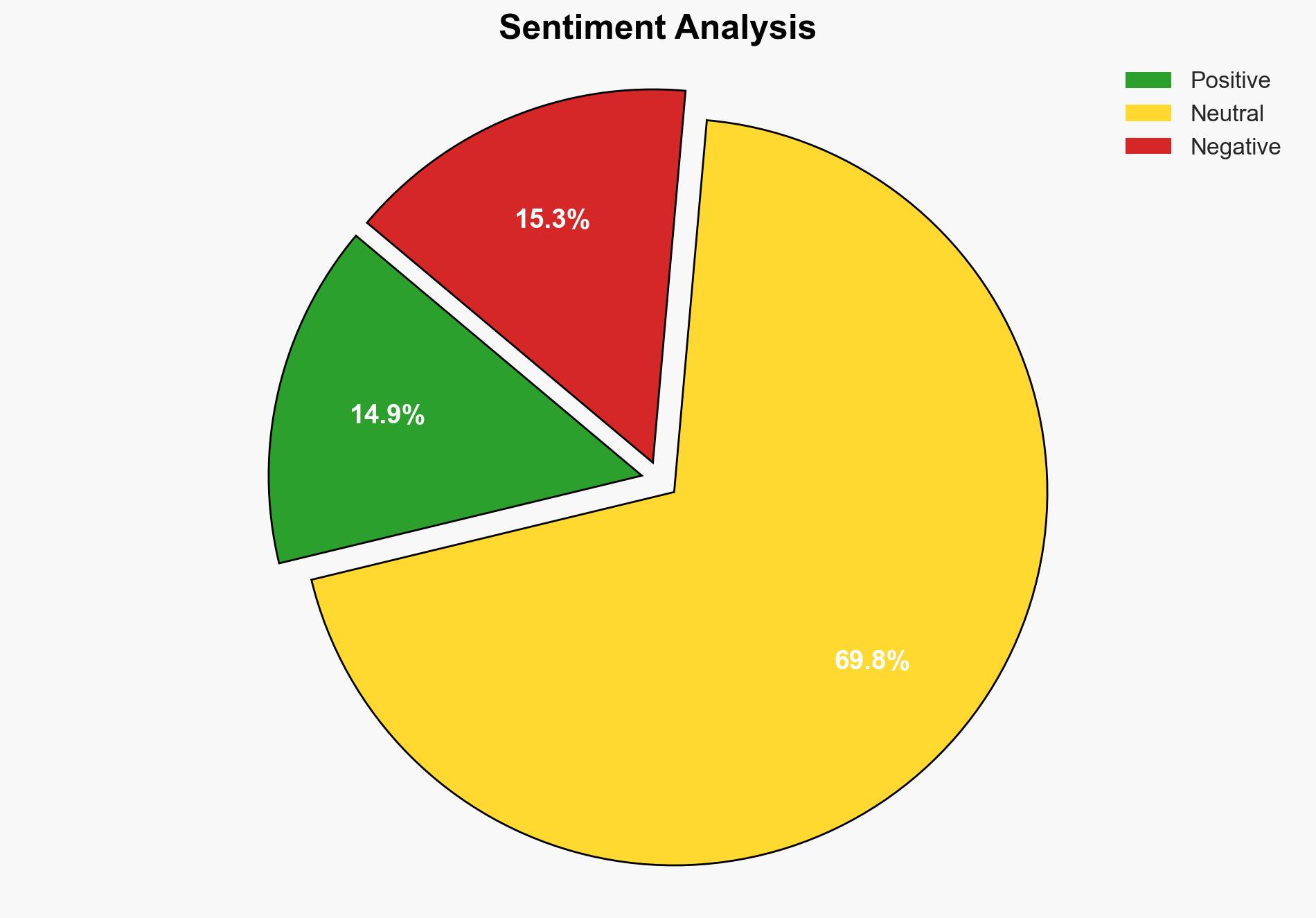Protesters decry expanded role for Indonesian military – Bangkok Post
Published on: 2025-03-20
Intelligence Report: Protesters decry expanded role for Indonesian military – Bangkok Post
1. BLUF (Bottom Line Up Front)
The recent passage of a law in Indonesia’s parliament, which allows military officers to occupy civilian positions, has sparked significant protests in Jakarta. Critics argue that this move could undermine democratic principles and lead to increased military influence in civilian affairs. The protests, led by student coalitions, demand the maintenance of civilian supremacy. The situation poses potential risks to Indonesia’s democratic stability and could impact foreign investor confidence.
2. Detailed Analysis
The following structured analytic techniques have been applied for this analysis:
General Analysis
The law’s passage represents a significant shift in Indonesia’s civil-military relations, reminiscent of the New Order era under Suharto. The legislation allows military officers to assume civilian roles without resigning from the military, raising concerns about potential human rights abuses and impunity. The law’s rapid passage suggests strong political backing, notably from Prabowo, who has historical ties to the military. This development has led to public unrest, with protesters fearing a rollback of democratic gains.
3. Implications and Strategic Risks
The expanded military role in civilian affairs could destabilize Indonesia’s democratic institutions and erode public trust in governance. Regionally, this move might set a precedent for increased military involvement in politics, similar to trends observed in Thailand and Myanmar. Economically, the uncertainty surrounding Indonesia’s political direction could deter foreign investment, particularly if investor confidence is shaken by potential instability.
4. Recommendations and Outlook
Recommendations:
- Encourage diplomatic engagement with Indonesian authorities to promote adherence to democratic norms and human rights.
- Monitor developments closely to assess the impact on regional security and economic stability.
- Consider supporting civil society initiatives that advocate for democratic governance and civilian oversight.
Outlook:
In the best-case scenario, the Indonesian government may engage in dialogue with protesters and civil society groups, leading to amendments in the law that reinforce civilian supremacy. In the worst-case scenario, continued unrest could escalate into broader political instability, affecting regional security. The most likely outcome involves ongoing protests with potential concessions by the government to address public concerns.
5. Key Individuals and Entities
The report mentions several key individuals and entities involved in the situation:
- Usman Hamid
- Prabowo
- Puan Maharani
- Sjafrie Sjamsoeddin
- Sufmi Dasco Ahmad
These individuals are central to the unfolding events and their actions will significantly influence the outcome of the current situation.




